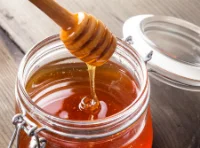Natural Ways to Prevent and Treat Colds and Flu
/When it comes to cold and flu season, prevention really is the first line of defense. To keep your body's defense system--the immune system--in peak condition, follow my immunity-boosting tips to help your body fight off the bugs looking for a host. And, for times when you are feeling ill, the second set of tips can help ease your symptoms and support a quick recovery.
Cold & Flu Prevention Tips
Your immune system is at work 24/7! The best approach to supporting immune function is a healthy lifestyle that includes stress management, exercise, whole foods, nutritional supplementation, and the use of plant-based medicines. On a daily basis, you can take the following steps to help your immune system keep you healthy:
- Wash your hands regularly to help prevent transfer of bacteria.
- Stay clear of people sneezing or coughing. Avoid shaking hands or other close contact with anyone whom you know to be sick.
- Make sure your home and work space are well-ventilated. Even on a cold day, open a window for a few minutes to clear out stale air.
- Follow a consistent sleep/wake schedule so the immune system can repair and recover.
- Drink plenty of water and eat a balanced diet that includes a variety of fruits and veggies, which contain antioxidants that help the body neutralize cellular damage.
Healing Tips
- Rest. Sometimes the body's only way of getting your attention is to force you to slow down by getting sick. Don't push through fatigue. Honor your body and sleep/rest as needed to promote healing. Reduce activity at home and at work as much as possible.
- Increase fluid intake to include water, diluted vegetable juices, soups, and herbal and green teas.
- Eat light meals and eat more soup. Whether you choose a vegetarian broth or a heartier bone-broth, soups for healing should be loaded with a variety of herbs and veggies.
- Manage stress. Even just 10 minutes of meditation a day has positive effects on the immune system and promotes a positive mindset.
- Laugh--it truly is good medicine. Patch Adams was onto something when he brought humor to his patients' bedsides. Read a funny book. Watch stand-up comedy. Share jokes with a friend or your kids. Laughter lowers the stress hormones and elevates your mood--both are good for healing.
Vitamin, Mineral, and Botanical Support for the Immune System
There's no panacea, but a growing body of research has shown that certain vitamins, minerals, and plant-based supplements can help prevent/curtail the symptoms of colds and flu. Some that you may want to include are listed below. Talk to Dr. Bossio as these suggestions must be tailored to your specific needs and health status.
- Multivitamin and mineral formula
- Vitamin C
- Bioflavonoids, 1000 mg/day
- Vitamin A
- Vitamin D
- Zinc, 30 mg/day
- Echinacea, elderberry, and astragalus (tea, capsule, or liquid extract) help prevent common cold and viral infections. Physician-scientists continue to study the immune-enhancing effects of these and other botanical remedies.
Image Attribution: Dirima/bigstockphoto.com


